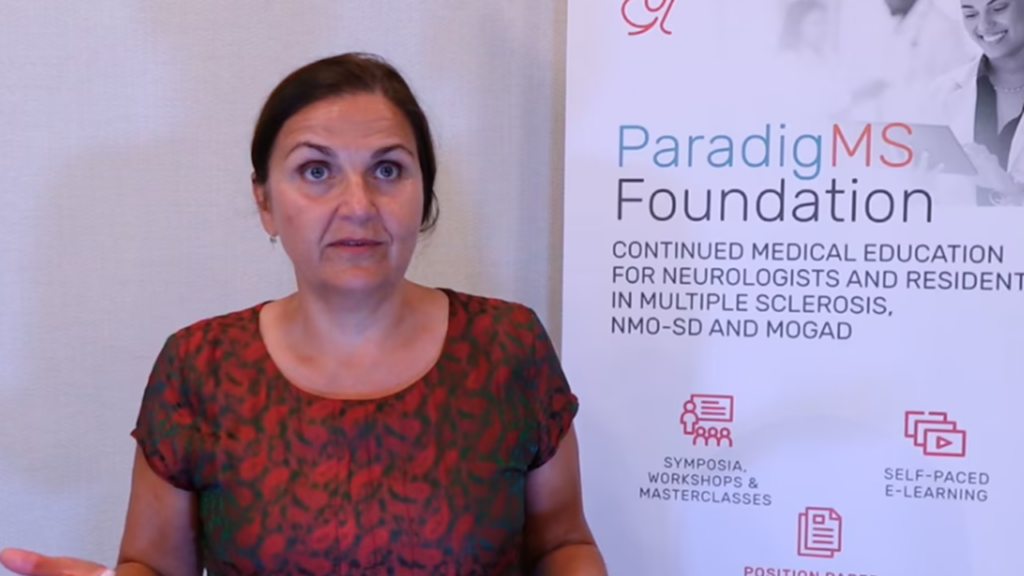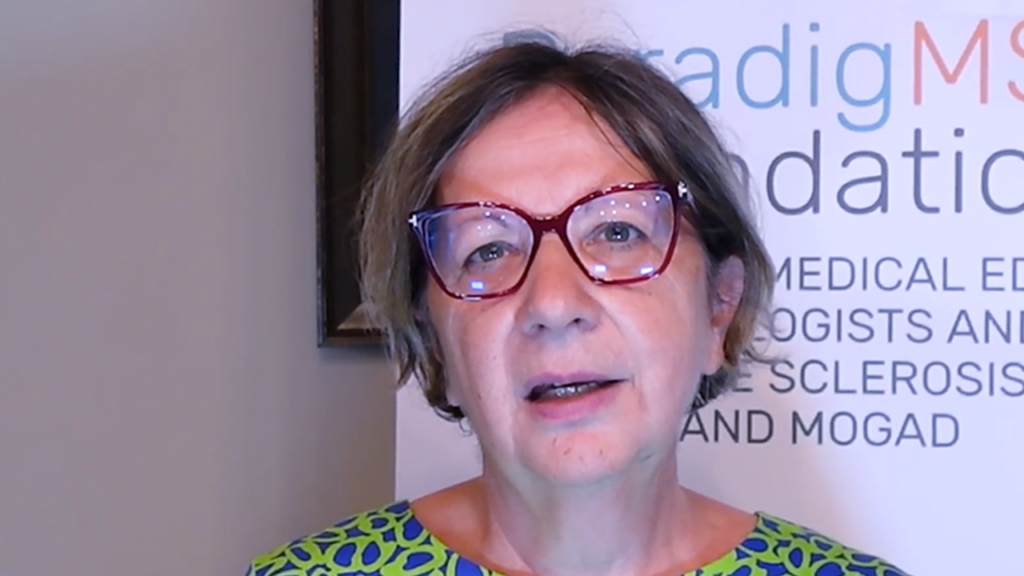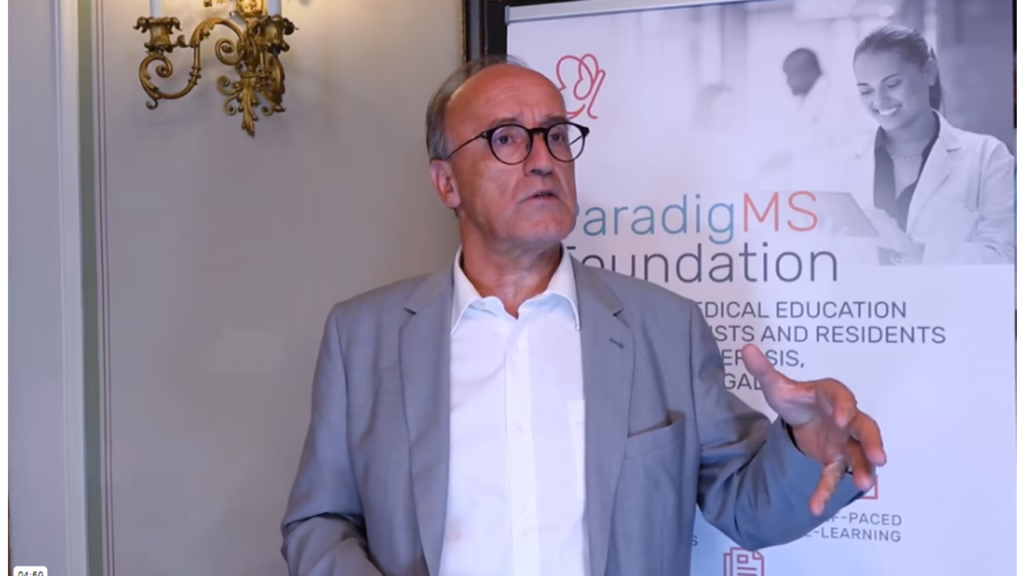Insights on MS and NMO-SD: Expert Perspectives

By ParadigMS Foundation
We had the opportunity to meet with some of the leading experts in the field, who shared their perspectives on the evolving management of Multiple Sclerosis (MS) and Neuromyelitis Optica Spectrum Disorder (NMO-SD). Through these insightful interviews, they discuss the latest research, diagnostic advancements, therapeutic strategies, and the critical importance of improving access to high-efficacy treatments. This content is essential for healthcare professionals aiming to refine their clinical practice and optimize patient outcomes in these complex neurological conditions.
– Multiple Sclerosis and Neuromyelitis Optica Spectrum Disorder

Critical distinctions between Multiple Sclerosis (MS) and Neuromyelitis Optica Spectrum Disorder (NMO-SD) are discussed by Prof. Melinda Magyari who emphasizes NMO-SD’s unique pathophysiology driven by aquaporin-4 antibodies. She highlights the urgency of identifying and treating relapses in NMO-SD, underscoring the parallels with stroke management to prevent irreversible disability.
Key Insight: Accurate, rapid diagnosis using aquaporin-4 antibody tests is essential to optimizing outcomes in NMO-SD patients.
– Multiple Sclerosis in the Balkan region

Prof. Jelena Drulovic outlines recent improvements in the availability and efficacy of disease-modifying therapies (DMTs) for MS in the Balkan region, particularly in Serbia, where 60% of patients now have access to high-efficacy treatments. She stresses the role of continued education through initiatives like ParadigMS to further reduce diagnostic delays and enhance personalized treatment strategies.
Key Insight: Educational platforms are crucial in promoting evidence-based treatment approaches and improving patient outcomes in under-resourced regions.
– Microglia in Multiple Sclerosis

And Prof. Patrick Vermersch explores the role of microglia in the progression of MS, particularly in relation to smoldering inflammation and neurodegeneration. He highlights the need for therapies targeting both adaptive and innate immunity, particularly microglia, to combat progression independent of relapse activity.
Key Insight: Ongoing research into microglia-targeting therapies holds promise for mitigating progressive MS and reducing long-term disability.
Stay tuned for more expert insights! Be sure to check back regularly for updates and further opportunities to enhance your clinical knowledge.
